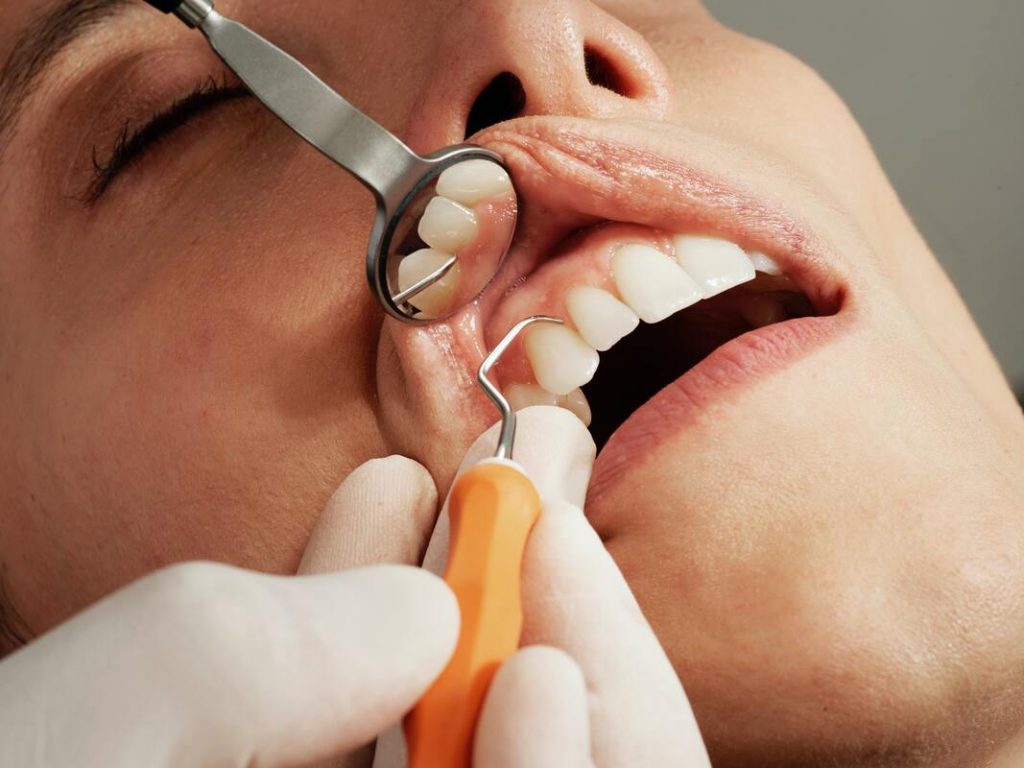It is common for elderly people to lose their teeth. While there are many potential causes, tooth loss can lead to several health problems. This article will explore the causes and effects of tooth loss in the elderly and available solutions.
Causes of Tooth Loss in the Elderly
There are many potential causes of tooth loss in the elderly. The following are some of the most common causes.
Aging itself can lead to tooth loss. As people age, their teeth may become weaker and more brittle. This can make them more susceptible to breakage and decay. Changes in hormones can also lead to tooth loss. For example, during menopause, women may experience changes in their hormone levels that can lead to gum disease and tooth loss.
Poor oral hygiene is a major cause of tooth decay and gum disease, leading to tooth loss. When the elderly neglect the routine of brushing their teeth twice a day, flossing, and the use of mouthwash, they are more likely to develop these serious problems. Gum disease is an infection of the gums that can damage the tissues and bones that support the teeth. Tooth decay leads to cavities, holes in the teeth that can also lead to tooth loss if not treated.
Certain medical conditions can lead to tooth loss. For instance, diabetes can cause gum disease, while osteoporosis can weaken the teeth and make them more susceptible to fractures. In addition, cancer and its treatments can sometimes lead to tooth loss.
Another common cause of tooth loss in the elderly is dry mouth. This can be a side effect of certain medications or a result of certain medical conditions. When there is not enough saliva in the mouth, it can lead to tooth decay and gum disease.
Smoking is a major risk factor for gum disease, one of the leading causes of tooth loss. Seniors who smoke or used to be smokers have a high risk for tooth loss.

Effects of Tooth Loss on the Elderly
Tooth loss can lead to several problems in the elderly. First, it can affect their appearance. Missing teeth can make a person look much older than they actually are. In addition, tooth loss can cause problems with eating and speaking. When teeth are missing, it can be difficult to chew food properly. This can lead to malnutrition or weight loss. It can also cause problems with speech, as missing teeth can change how a person forms words.
Tooth loss can have a major impact on oral health. There is an increased risk for gum disease and tooth decay when teeth are missing. This is because there are more spaces for bacteria to build up, and there is less support for the remaining teeth. This can lead to even more tooth loss.
In addition, tooth loss can also lead to social isolation. Many elderly people are embarrassed by their missing teeth and may withdraw from social activities. This can lead to feelings of loneliness and depression.
A study published on PubMed.gov in May 2021 showed that loss of teeth caused an increase in depression among adults in the U.S. The level of depression increased with the number of teeth lost. People who lost ten teeth or more had a level of depression similar to untreated major depressive disorder.
Solutions for Tooth Loss Among the Elderly
There are a number of solutions available for tooth loss. The pros and cons of these solutions must be explored to determine which one is most suitable for each individual.
Dentures
One option is dentures, which are false teeth that can be worn to replace missing teeth. Dentures can be either partial or full and have a number of advantages. They are relatively inexpensive and can be made to match the color of your natural teeth. In addition, they are easy to care for and can be removed when necessary.
However, dentures have a number of disadvantages. They can be uncomfortable and may cause painful irritations in the gums that can develop into sores. In addition, they can slip out of place and make it difficult to speak or eat.
Dental Implants
Another option is dental implants, which are artificial roots that are surgically placed in the jawbone to support artificial teeth. Dental implants are a more permanent solution for tooth loss and can be used to support either partial or full replacement teeth.
In traditional dental implants, the patient has to wait several months for the implant to fuse with the jawbone before the dentist can put in the replacement teeth. However, Clear Choice dental implants, in particular, can provide patients with temporary replacement teeth attached to the implant even while waiting for it to fuse with the bone. This immediately resolves many of the problems of tooth loss. Once the implant has healed, the dentist removes the temporary teeth and puts in the permanent replacements.
Dental implants have a number of advantages. They are more comfortable than dentures and do not require special care. In addition, they function like natural teeth, enabling the user to speak and eat without any issues. They also look natural.
The Elderly Must Not Suffer Tooth Loss
Tooth loss is a major problem for the elderly, as it can lead to health problems, social isolation, and depression. Dentures and dental implants are two possible solutions that can help the elderly regain their oral health and improve their quality of life. The first step is to seek professional help from a dentist to find out which solution is best for each individual. It is important to act quickly to prevent further tooth loss and its accompanying problems.

